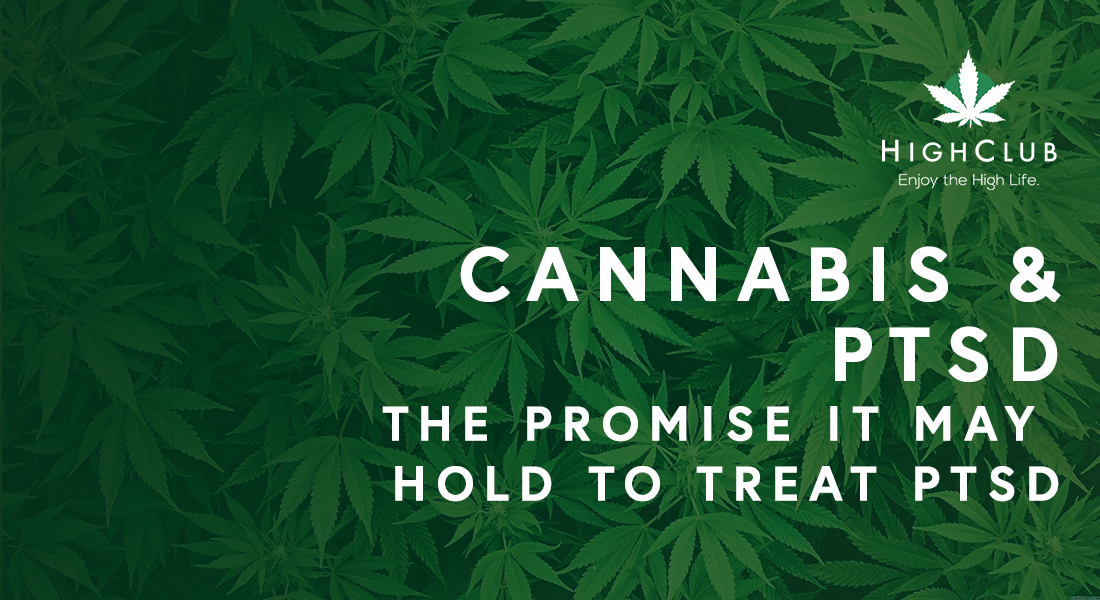As Cannabis becomes a popular treatment method for Post Traumatic Stress Disorder (also known as PTSD), there’s concern over its efficiency as prescriptions are based on inadequate evidence, a new UCL study reports.
In a systematic review that was published in the Journal of Dual Diagnosis, cannabinoids found in the cannabis plant was said to be able to help to treat PTSD, put people to sleep, and reduce nightmares. Cannabinoids are the active components of the cannabis plant.
The study recommended more research into this area, adding that cannabinoids should be taken with the utmost care and through clinical prescription. According to Dr. Chandni Hidocha, who is the head of the UCL clinical Psychopharmacology Unit, people are increasingly using cannabinoids to treat PTSD. He said military veterans are among the group that’s increasingly self-medicating by choosing cannabis to treat PTSD. Dr. Chandni said it was surprising that there’s no adequate evidence that supports the efficacy of cannabis as a treatment for PTSD, yet most people are using it to treat the very same.
“The problem could be there is no alternative PTSD treatment available,” she said. PTSD is a condition that makes people re-experience traumatic events through flashbacks, nightmares, and intrusive memories. It affects over 1% of the UK population.
There are a number of solutions that have proved efficient when it comes to treating PTSD. One such method is ‘Talking Therapies’, also known as psychotherapies. While these seem to work as far as PTSD goes, they are costly and not everyone can afford them. There are drugs that have been given the green light to be used in the treatment of PTSD, but these mostly come with diverse side effects. Besides, some people report that these drugs did not produce any results, so there is a possibility that these drugs do not work for everybody. With this in mind, researchers are on the lookout to find a new solution for PTSD, one that will be effective across the board. In the meantime, most people are turning to cannabis as a treatment. Cannabis is an approved drug for PTSD and is legal in most states that allow medical marijuana.
Cannabinoids are the active ingredients in the cannabis plant. They include Tetrahydrocannabinoid (THC) and Cannabidiol (CBD). These substances act on the brain’s endocannabinoid system to regulate some brain functions, most of which are affected by PTSD.
Researchers analyzed a host of studies where a patient with PTSD uses cannabinoids to treat their condition. Their aim was to assess the quality of each study. Their analysis led them to at least 10 studies that ticked all the right boxes. In the 10 studies, a range of products was in use, including smoked cannabis, CBD or THC in pill form or in oil form. Nabilone, a synthetic form of cannabis, was also assessed and found to be an effective treatment for PTSD.
The researchers found most of these studies to have a high risk of bias, based on the fact that they lacked a control group, had a small sample size, short follow-up time, and the fact that the subjects failed to report on whether they were using other medications or had an addiction issue. However, they found one study to be a controlled trial that was investigating the effectiveness of Nabilone. Even though this study passed the test, the researchers maintained that it had a small sample size and short follow-up periods of time.
Experts say the safety and efficacy of cannabis-based solutions used to treat PTSD raises more questions than answers, especially when it comes to their long-term effects including addiction and psychosis.
However, there’s hope. Some studies on cannabis products have shown that cannabis actually reduces nightmares and insomnia and that these are some of the effects of PTSD.
According to Dr. Michael Bloomfield of Pancras Hospital, researchers cannot make clinical recommendations on cannabis as a treatment for PTSD, because it’s not backed by bulletproof evidence. However, he said that there’s a need for more research in the area.
He added that researchers have concentrated their efforts on military veterans more than in any other group, noting that the studies need to be expanded to cover other groups as the nature of trauma is different across the board. Dr. Hidocha echoed this sentiment, saying that the medicinal use of cannabis has been slowed down by restrictions. “This means it could take a lot of time before any study deduces enough evidence to support a clinical recommendation.”
He said the solution was to find new approaches that could make use of existing evidence.
The study was a collaborative work between the UCL and The University of Amsterdam. The National Institute for Health Research UCLH Biomedical research center supported the study.

